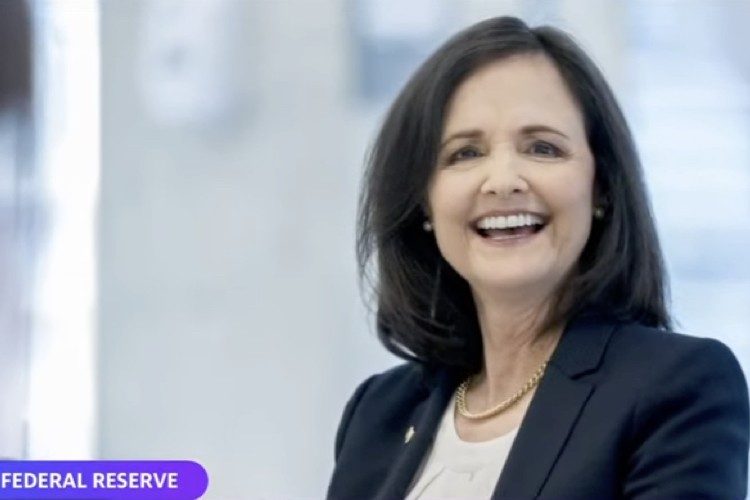
When Senate Majority Leader Mitch McConnell realized that he couldn’t get enough votes to break the filibuster of Judy Shelton’s nomination to the Federal Reserve Board on Tuesday, he changed his vote to “no.” That gives him a procedural opportunity to bring her nomination back to the floor once the three Republican senators who were missing (two due to COVID, one due to a family emergency) are back in Washington.
The confirmation hearing will likely continue the week after Thanksgiving, and will also likely result in the confirmation of Shelton to fill a vacancy on the board.
So, why the filibuster? She has been called “radical,” “dangerous,” and “controversial” because she sees the Fed for what it is: a “rogue agency” (in her words) that is in charge of slowly devaluing the dollar under the guise of protecting its purchasing power.
In an interview at the Financial Times, she rhetorically asked, “How can a dozen … people meeting eight times a year, decide what the cost of capital [interest rates] should be, versus some kind of organically, market supply determined rate?”
She added:
The Fed is not omniscient. They don’t know what the right rate should be. How could anyone? If the success of capitalism depends on someone being smart enough to know what the rate should be on everything … we’re doomed. We might as well resurrect Gosplan [the committee that centrally planned the failed Soviet economy].
John Tamny, the political economy editor at Forbes and editor of RealClearMarkets.com, thinks it’s scandalous that her views are considered controversial. He explained:
In order for currencies to be broadly circulated they must be trusted [to keep their value]. That’s the case because no one exchanges money when they transact.… They exchange products for other products. Money is just an agreement about value that facilitates the transaction….
No sane person will hand over real goods and services for money that is exchanging for fewer and fewer goods and services [over time]….
When monetary authorities devalue what we call money, they’re robbing workers of the fruits of their work. It’s as simple as that.… Politicians can shrink our buying power through direct taxation, or they can do so through the tax that is devaluation [inflation]. Both are cruel levies placed on our work.
Long before he became head of the Fed, Alan Greenspan contributed a chapter to Ayn Rand’s Capitalism: The Unknown Ideal in 1966. He explained back then why there remains such opposition to Sheldon’s confirmation today:
The opposition to the gold standard in any form [is] prompted by a much subtler insight: the realization that the gold standard is incompatible with chronic deficit spending (the hallmark of the welfare state).
Stripped of its academic jargon, the welfare state is nothing more than a mechanism by which governments confiscate the wealth of the productive members of a society to support a wide variety of welfare schemes….
The abandonment of the gold standard made it possible for the welfare statists to use the banking system as a means to an unlimited expansion of credit….
This is the shabby secret of the welfare statists’ tirades against gold [and its supporters]. Deficit spending is simply a scheme for the “hidden” confiscation of wealth. Gold stands in the way of this insidious process. It stands as a protector of property rights.
If one grasps this, one has no difficulty in understanding the statists’ antagonism toward the gold standard.
Once confirmed, Sheldon will be a lonely but necessary voice for common sense in a world infatuated with the idea that individuals can manage economies through the manipulation of the supply of money better than can the free market.
Related articles:
https://thenewamerican.com/trump-nominates-gold-advocate-to-federal-reserve/ Trump Nominates Gold Advocate to Federal Reserve
https://thenewamerican.com/trump-s-latest-federal-reserve-board-pick-backs-the-gold-standard/ Trump’s Latest Federal Reserve Board Pick Backs the Gold Standard



